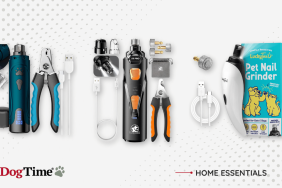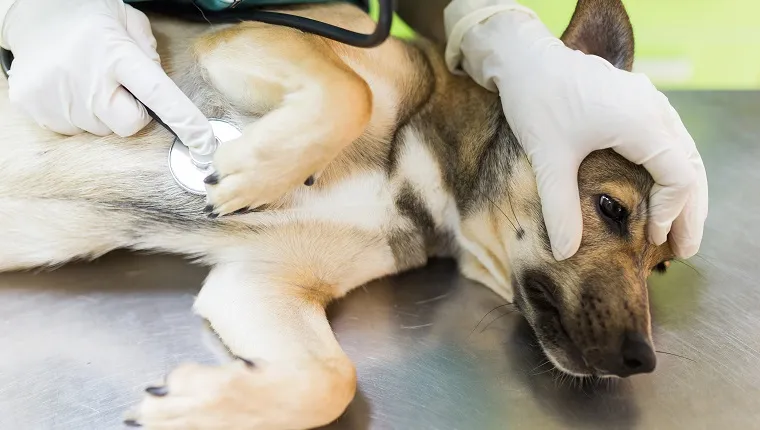
We all think that we know the basics of keeping our pets safe, yet each year there are thousands of pet poisoning cases just in the United States.
Items that are safe to handle and ingest for humans, including certain foods and medications we may take on a daily basis, can cause huge problems for dogs.
Furthermore, pets who suffer accidental poisoning can experience gastrointestinal and neurological issues, cardiac and respiratory distress, or even coma and death.
Thus, it’s important for responsible pet parents to know possible causes of poisoning in dogs. March is Pet Poison Prevention Awareness Month, and the third week in March is National Poison Prevention Week, so it’s the perfect time to learn and educate our fellow dog lovers.
Here are ten of the most common causes of dog poisonings that all pet parents should know about.
If you need help or more information, call your veterinarian. You can also call the ASPCA’s Animal Poison Control Center’s 24-hour hotline at 888-426-4435. You may be charged for the service, but if your dog’s life is on the line, it’s worth the cost.
As pet parents we, try as we might, make mistakes and can’t always protect our beloved animals from the dangers that lurk in our homes and on our property. Careful storage and good judgment can go a long way toward keeping our dogs safe from the most common causes of poisoning.
Do you know any other common sources of poisoning in dogs? Will you help spread the word to help other pet parents keep their pups safe? Let us know in the comments below!
Common Ways Dogs Are Accidentally Poisoned
-
Medications

(Picture Credit: Oxana Medvedeva/Getty Images)
Many of the coatings on everyday medications appeal to dogs, as they taste sweet. But several human medications are toxic to dogs, and any medication can be toxic when consumed in high enough doses.
Ibuprofen and naproxen are common causes of canine poisoning, especially in smaller dogs.
Antidepressants, medications for ADHD, vitamin D derivatives, the muscle-relaxant Baclofan, birth control pills, and some popular decongestants can also cause a range of symptoms in dogs, including seizures and kidney failure.
The anti-cancer drug Fluorouracil is a topical medication that is deadly to dogs. Even a chewed-on swab with a dab of this medication can rapidly prove fatal to your pet.
The best rule is to keep all medications completely out of reach of pets, and store them wisely. A zip-lock bag can be chewed through and offers too much temptation with its view of the “treats” inside.
-
Rodent Poison
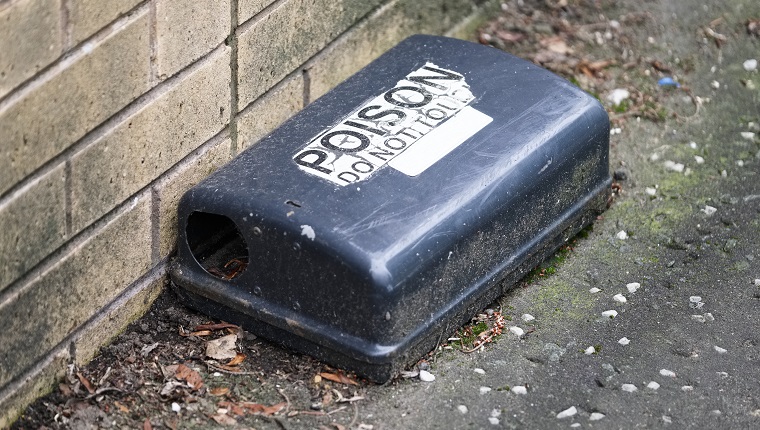
(Picture Credit: richard johnson/Getty Images)
Animals become ill and often die after eating poison intended for rats and mice. They may also be the target of secondary poisoning if they hunt rodents that ingested the poison.
The ingredient bromethalin is the culprit, and affected animals will show symptoms anywhere from two days to several weeks after exposure.
Look for loss of appetite, impaired movement or even paralysis in back limbs, muscle tremors, and seizures.
A dog who eats rodent poison needs to have the digestive tract decontaminated as soon as possible. This is done by inducing vomiting and administering activated charcoal and an osmotic cathartic to induce the bowels to empty.
Get your pet to the vet for treatment right away.
Prevention is always best, so make sure your dog has no access to these poisons when you use and store them.
-
Chocolate

(Picture Credit: Getty Images)
Veterinary doctors treat pets poisoned by chocolate all too frequently. Even one chocolate chip cookie can cause big problems for a little dog, and a larger bite of chocolate could land a larger dog in trouble.
If your dog eats chocolate, especially the darker kinds, call your vet right away. The vet will likely need to induce vomiting.
Warning signs may take up to twelve hours to appear and include extreme thirst, diarrhea, pacing, panting, shaking, and seizures.
The stimulants in chocolate can stay in the body a long time. Quick treatment can make a big difference for a full recovery.
-
Poisonous Plants

(Picture Credit: kazue tanaka/Getty Images)
How does your garden grow?
Beautiful -- and often common -- house and garden plants can be extremely toxic to pets. Many can cause vomiting, drooling, increased heart rate, seizures, coma, and even death.
The ASPCA provides a complete list of plants to watch out for that includes lilies, oleander, autumn crocus, chrysanthemum, and English ivy.
Marijuana causes depression of a dog's central nervous system, and nibbling an azalea can lead to cardiovascular collapse and death.
Be informed, and choose plants for your garden or home with your pet's safety in mind.
-
Household Chemicals

(Picture Credit: Getty Images)
Common household products can poison your pet, with toxicity severity ranging from mild to life-threatening.
Detergents and fabric softener sheets can cause ulcers in the mouth and stomach, and household cleaners like bleach, drain and toilet bowl cleaners, and ammonia are also dangerous.
Kerosene, gasoline, and tiki torch fluid are severely toxic and will cause a dog to have difficulty breathing.
Mothballs, especially those with naphthalene, have toxins that can lead to vomiting, diarrhea, and seizures.
Window cleaners contain methanol or ethylene glycol, resulting in low blood sugar, and drunken walking.
-
Snail Bait
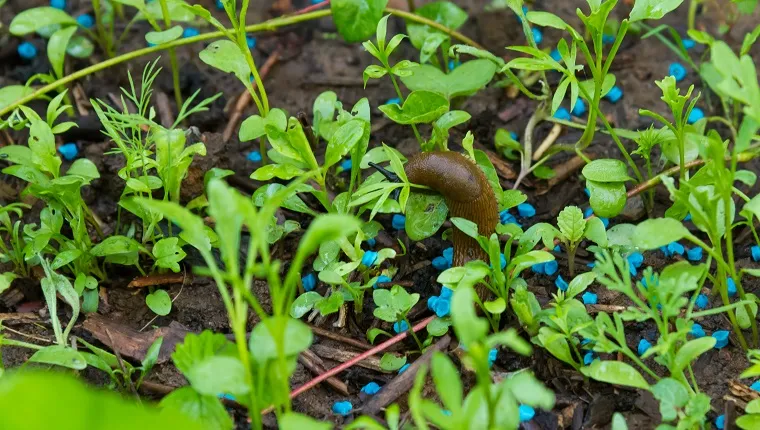
(Picture Credit: H_Barth/Getty Images)
Metaldehyde is an ingredient in slug and snail bait -- and sometimes used as solid fuel in camp stoves -- that is poisonous to dogs, primarily affecting their nervous system.
When an animal ingests this poison, the only treatment is to eliminate the metaldehyde from their system.
The vet will pump their stomach and, if the dog is not convulsing, give activated charcoal to help absorb poison in the stomach and intestines.
Prognosis for recovery really depends on how much of the poison the dog has eaten and how quickly they get help. Some dogs die within hours of ingestion, so seek help immediately.
-
Toxic Toads

(Picture Credit: Getty Images)
There are several species of toads out there that can cause poisoning in curious dogs who lick them or pick them up in their mouths.
Their skin is covered in protective poison. Toad poison is highly toxic to dogs and frequently fatal if not treated.
Remove poison from the mouth by directly flushing with a garden hose and get your pet to a vet immediately.
Mild sedation may benefit dogs who suffer from anxiety, pain, or distress. A cooling bath can sometimes help treat high fever, along with drugs that combat abnormal heart rate.
As always, you must call your emergency vet before beginning any treatment on your own.
-
Insecticides
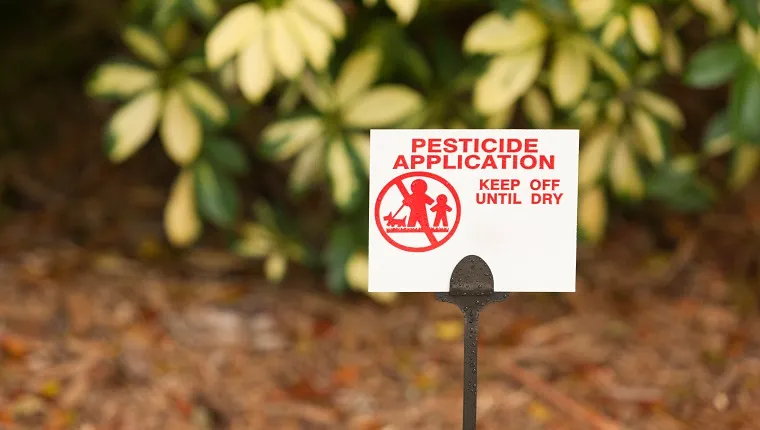
(Picture Credit: Huntstock/Getty Images)
Agricultural, lawn and garden insecticide products can cause toxicity in pets. Dogs exposed to these toxic chemicals may not exhibit the classic signs of poisoning, but there will usually be some sign the animal is not well.
A range of symptoms are associated with insecticide poisoning: fever, vomiting, anorexia, depression, muscle tremors, constricted pupils, increased heart rate, and respiratory failure are just a few.
The sooner an exposed dog gets professional treatment, the better the prognosis.
Use and store these products carefully. Talk to your vet before using flea and tick treatments on a sick animal, as it will affect the body more easily due to their weakened immune system.
-
Heavy Metals

(Picture Credit: Martin Barraud/Getty Images)
Metal poisoning can occur in several ways: breathing polluted air, lapping up contaminated water, licking a paint can, or even consuming large amounts of food and water that are treated with certain chemicals.
The extent to which these metals affect the dog depend on body weight, size, and breed.
If you suspect metal poisoning in your dog, your veterinarian can conduct a hair analysis to determine the level of danger and help decide on a course of action.
-
Antifreeze

(Picture Credit: Getty Images)
Dogs seem to love the smell and taste of antifreeze, and it's one of the most frequent types of pet poisoning. It's sweet, and dogs love sweet things.
The ingredient ethylene glycol makes this product and others, like hydraulic brake fluids, lethal for pets.
Keep containers tightly closed and stored out of reach. Take care of leaks and spills by cleaning them up immediately and completely.
Dispose of containers properly, and never let your pet wander unattended where they can possibly have access to antifreeze -- places like roads, gutters, garages, and driveways.
Know the symptoms and get help immediately if you suspect antifreeze poisoning.







